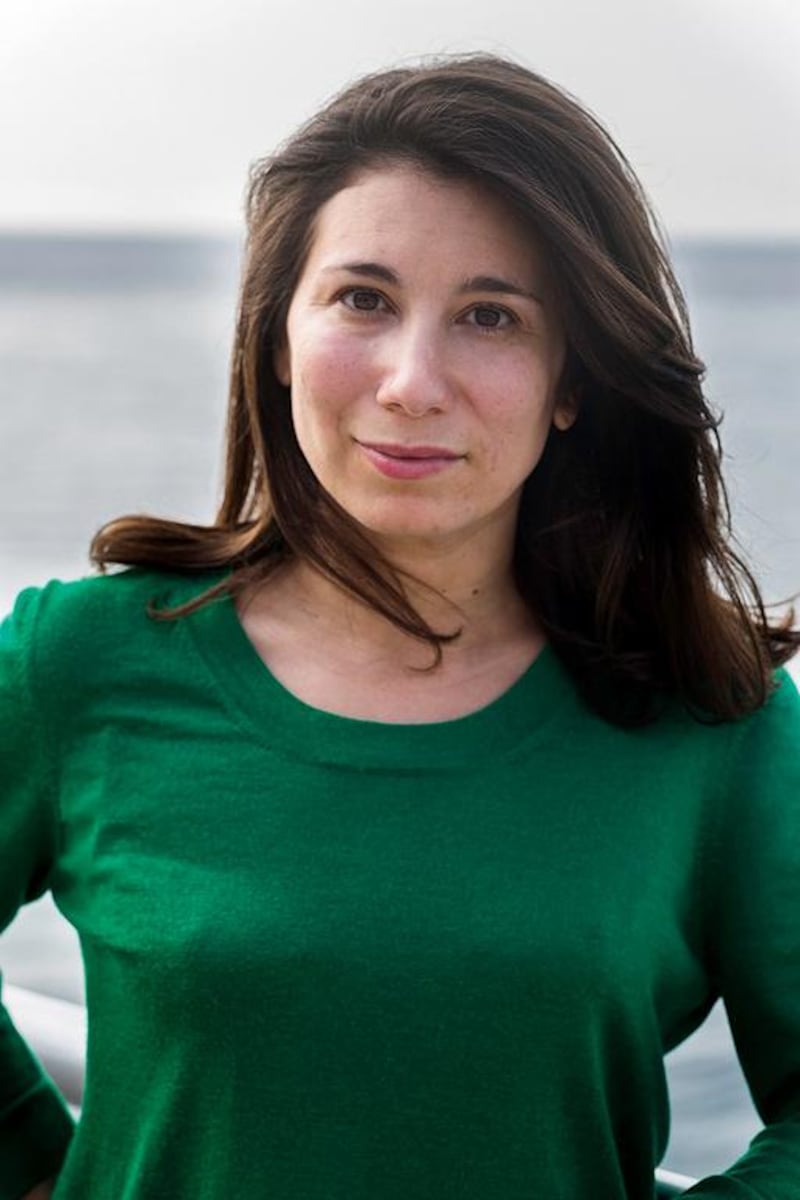Claire Hajaj grew up in Kuwait, with a Palestinian father and Jewish mother. Her unusual upbringing is the starting point for her debut novel, which looks at love and life across cultures and religions.
At the centre of Hajaj's Ishmael's Oranges is the love affair between a troubled Jewish girl and an idealistic Palestinian boy. Its backdrop is decades of unrest in the Middle East. Just hours after we finish speaking, an Israeli shell falls on a Gaza beach, killing four children.
“I find what’s been happening deeply upsetting,” she says. “For me, it replays what I saw over and over again as a child, watching Palestinians throw stones at Israeli tanks and feeling this sense of despair. But what gives me hope are the small moments of human connection I see across the divide – these are unsung and drowned out.”
Ishmael's Oranges is full of these little moments of cross-cultural promise – and Hajaj should know all about them: her mother is Jewish and her father Palestinian. But this novel, perhaps wisely, isn't some rose-tinted plea that "everything will be all right if we just love each other". Salim and Jude fall for each other in 1960s London, but the prejudices, memories and obligations from their childhoods drive them apart as the decades of hatred continue.
Hajaj says that one of the main sources of inspiration for Ishmael's Oranges was the failure of her own parents' marriage. There were personal reasons, naturally, for their break-up. But she says politics played a huge part.
“Belonging to a tribe gives you all sorts of certainties,” she says. “It gives you a pre-inherited set of qualities – who is my friend, who is my enemy, what kind of life shall I live, which values shall I hold. But I chose not to align myself with either ‘side’ and as a result grew up feeling quite lonely. Am I Arab? Am I English? Am I Palestinian? Am I Jewish? What flag do I fly?
“And if you don’t fly one, as Jude and Salim find out in the book, you are punished quite severely. They really do struggle to shrug off these burdens and shape their own course. Their families are bewildered and anxious, and the tribes beyond them who don’t have that softening influence of love are even less forgiving. And that’s a tragedy of these two peoples – it is the peacemakers who are labelled the traitors and become the outcasts.”
So it will be interesting to see how Hajaj is labelled when her book is published this week. She admits the challenge was to ensure both the Jewish and Palestinian perspectives were properly balanced, but if anyone can make a compelling, thought-provoking and honest story out of these disparate viewpoints, it’s Hajaj – she lives in Lebanon, grew up in Kuwait and has essentially spent her adult life building bridges between the two worlds through her work with the United Nations. “You know, Salim has a chance,” she says of her protagonist. “He meets a woman who understands him, they have children and, of course, they are sorely tested – he faces racism and disapproval. But it drags him back to replay the wrongs and the loss he suffered as a child – to the point where it makes what he has built for himself less important.
“And I guess the core message of the book is that it will be a long, hard road for this part of the world if everyone believes they have to right all the wrongs of the past. I completely understand that both Palestinians and Israelis have this ideal of the kind of life they feel their children ought to inherit, because of the lives they have lived. But, in the end, you have to ask what kind of future you’re trying to create, too.”
Ishmael’s Oranges (Oneworld) is out now
artslife@thenational.ae





